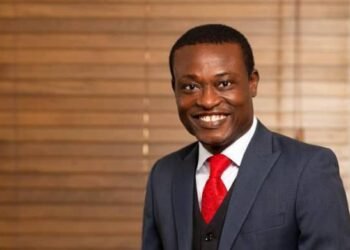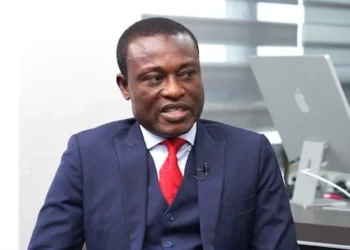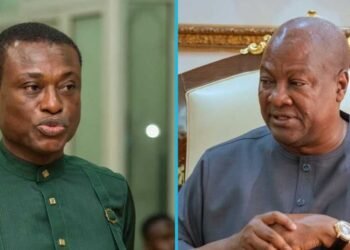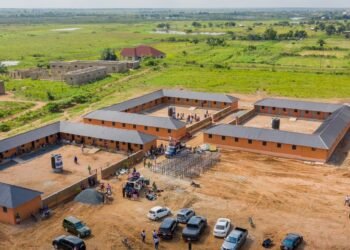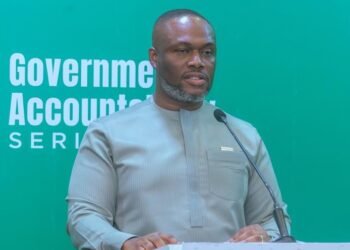There have been several calls from educationists advocating for a cap on the enrollment of students entering Senior High Schools (SHS), Technical, and Vocational schools, with the aim of improving Basic Education Certificate Examination (BECE) performance.
However, Professor Avea Nsoh of the University of Education, Winneba, disagrees with this view. He believes that instead of limiting student enrollment in second-cycle education, attention should be directed elsewhere.
In an exclusive interview with The Vaultz News, Professor Avea dismissed the proposal, arguing that the challenges affecting BECE performance stem from foundational issues within the education system and should not be attributed solely to the students.
“I have a problem with that. You know, the problem is not just that we have opened it and we have not capped it, and so people are not performing well. To me, it’s very wrong. Our teaching at the lower level does not prepare people adequately. So, what we should be doing is to prepare people adequately.
“Our problem is that we always blame the end product; we are not blaming the whole system. So, if we want people to qualify well and be able to be up and doing, it means that we should improve our downstream system. It also means that we have to change our educational system. We are too grammar-like.”
Professor Avea Nsoh
Prof. Avea lamented that the current educational system is focused solely on preparing youth for ‘white collar jobs,’ which he said do not exist.

As such, he emphasized that the education system and its programs should be designed to address and provide practical solutions to society’s real challenges.
He believes that Ghanaian parents have been misled by the elites into thinking their children must attend private schools to become proficient in English.
He argued that this is a tactic by the elites to keep parents accepting the flaws in the education system.
Unchecked Inclusion of Private Schools In Free SHS Cautioned
Meanwhile, the government has set up an 8-member committee to review the country’s education system. Following this development, there have been several calls to include private senior high schools in the Free Senior High School policy.
While Prof. Avea agrees with this proposal, he warned that it must be carefully planned.
He noted that private SHSs are profit-driven entities, so there should be clear guidelines on how their integration will function.

The government should, he pointed out, only cover essential administrative costs rather than assuming all expenses.
“What we should do is to make a distinction between what the private schools will make for a profit, for instance. Because that is a profit-making organization.
“I think we should make a decision that will open it up and provide the facilities that the Free SHS will need. For instance, they don’t have to pay school fees; we will have to pay for them and all that the running of the school entails.”
Professor Avea Nsoh
The veteran Professor emphasized that the government should avoid providing support that essentially benefits entrepreneurial businesses.
He believes the government should not be responsible for covering costs that private schools can manage themselves, such as infrastructure, teacher salaries, and certain teaching materials outside the Free SHS program.
He also cautioned against allowing private schools to influence government decisions through lobbying.
Private SHSs Not the Fix for Infrastructure Gap
One of the main criticisms of the Free SHS policy has been the inadequate infrastructure, raising concerns about the quality of education in second-cycle institutions struggling with these gaps.
Some educationists argue that including private Senior High Schools in the Free SHS policy could help address the infrastructure shortfall caused by the large enrollment since the program’s launch in 2017 under the Nana Addo-led government.
However, Prof. Nsoh disagrees, stating that while this may help with some infrastructure issues, it is not a complete solution. He believes the government must make significant investments in the education sector to effectively tackle the problem.
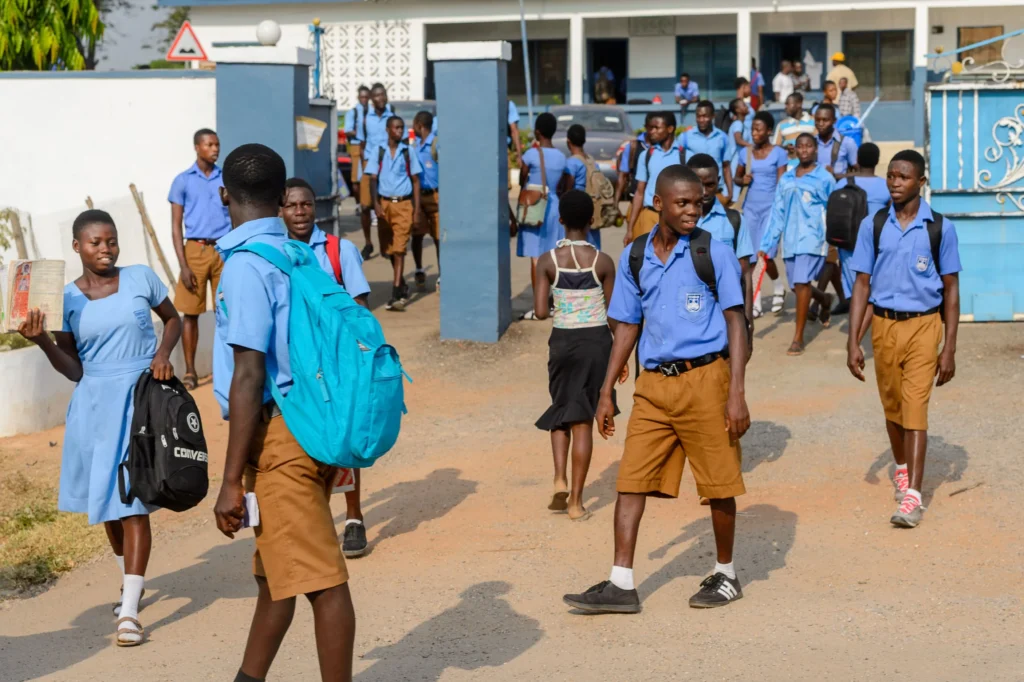
He further explains that the private sector will likely prioritize admitting as many students as possible to maximize profit, rather than focusing on improving infrastructure.
Thus, relying solely on incorporating private senior high schools into the policy will not resolve the infrastructure challenges.
“There is so much gap within the public system that it is going to be so difficult to immediately be able to fill. Bringing in the private schools will not change that much. In fact, most of the private schools do not have the kind of space they are talking about, which could be hugely changed. It will support and improve it to some extent.”
Professor Avea Nsoh
However, it remains to be seen what outcomes will emerge from the 8-member committee once their work is concluded and the final report is submitted to the President for review and potential implementation.
READ ALSO: Expert Hails Ghana’s Oil Revival as Tullow and Eni Restart Drilling




